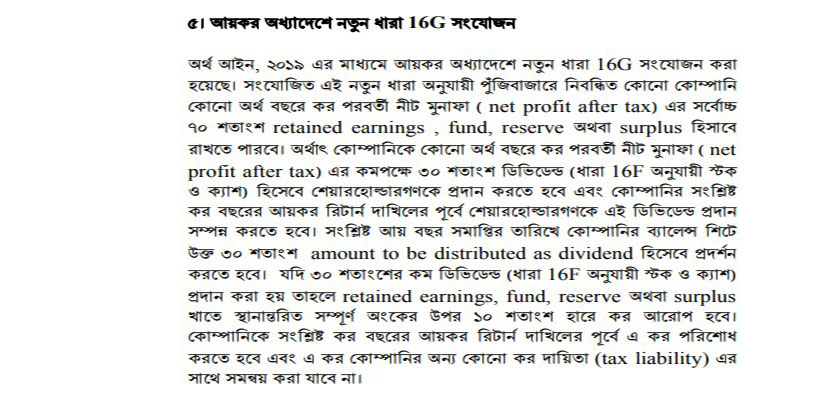শেয়ারবাজারে তালিকাভুক্ত এসএস স্টিল লিমিটেডের ১৬৭ কোটি ৫৬ লাখ টাকার বকেয়া ঋণ আদায়ের লক্ষ্যে এর সম্পদ নিলামে তুলছে ব্যাংক এশিয়া ।
কোম্পানিটির সম্পত্তি নিলামে তোলার জন্য গতকাল ১২ জানুয়ারি দৈনিক সংবাদপত্রে নিলাম বিজ্ঞপ্তি দিয়েছে ব্যাংক এশিয়া। আগ্রহী ক্রেতাদের ৩০ জানুয়ারির মধ্যে মূল্য উদ্ধৃতি জমা দেওয়ার জন্য আহ্বান জানানো হয়েছে। নিলামটি ২০০৩ সালের অর্থ ঋণ আদালত আইনের বিধান অনুসরণ করে প্রতিপালন করা হচ্ছে বলে বিজ্ঞপ্তিতে উল্লেখ করা হয়েছে।
নিলাম বিজ্ঞপ্তি অনুসারে, গাজীপুরে অবস্থিত ১৪৮.৫ শতাংশ জমি, কারখানা ভবন এবং ভিতরের যন্ত্রপাতি সহ সব নিলাম ডাকা হয়েছে। নিলামে তোলা সমস্ত সম্পদ এসএস স্টিলের মালিকানাধীন বলে ব্যাংকটি জানিয়েছে।
ব্যাংকের সূত্র জানায়, কোম্পানিটি প্রথমে কার্যকরী মূলধনের জন্য ডিমান্ড লোন নিয়েছিল। কিন্তু, একাধিক নোটিশ সত্ত্বেও, এসএস স্টিল সময়মতো ঋণের কিস্তি পরিশোধ করতে ব্যর্থ হয়, যার ফলে নিলাম প্রক্রিয়া শুরু হয়।
কোম্পানির নিরীক্ষিত আর্থিক বিবরণী অনুসারে, এসএস স্টিলের ঋণের বোঝা নাটকীয়ভাবে বৃদ্ধি পেয়েছে, যা ২০২৩ অর্থবছরের তুলনায় ২০২৪ অর্থবছরে ১১৩ শতাংশ বৃদ্ধি পেয়ে দাঁড়িয়েছে ১ হাজার ৯৬৭ কোটি টাকায়।
ঋণদাতাদের মধ্যে ন্যাশনাল ব্যাংক সবচেয়ে বড়, যার এক্সপোজার ৩৯২ কোটি টাকা, তারপরে ইউনাইটেড কমার্শিয়াল ব্যাংক ২১১ কোটি টাকা, এবি ব্যাংক ১৮৮ কোটি টাকা এবং ট্রাস্ট ব্যাংক ১৩৮ কোটি টাকা।
২০২৩ সালের নভেম্বরে, বাংলাদেশ সিকিউরিটিজ অ্যান্ড এক্সচেঞ্জ কমিশন (বিএসইসি) এসএস স্টিলের ক্রমবর্ধমান দায় সম্পর্কে উদ্বেগ প্রকাশ করেছিল। তবে,বিএসইসি এখন পর্যন্ত কোম্পানিটির বিরুদ্ধে কোনও ব্যবস্থা নেয়নি।
কোম্পানিটি গত অর্থবছরে তার শেয়ারহোল্ডারদের জন্য ২ শতাংশ ক্যাশ ডিভিডেন্ড দিয়েছে। যা সাম্প্রতিক বার্ষিক সাধারণ সভায় অনুমোদিত হয়। তবে শেয়ারহোল্ডারদের এখনও ডিভিডেন্ড বিতরণ করা হয়নি।
২০১৮ সালে এসএস স্টিল তার প্রাথমিক গণপ্রস্তাবের (আইপিও) মাধ্যমে ২ কোটি ৫০ লাখ শেয়ার ইস্যু করে ২৫ কোটি টাকা সংগ্রহ করেছে, যার প্রতিটি ১০ টাকা অভিহিত মূল্যে।
২০২০ সালের আগস্টে এসএস স্টিল সালেহ স্টিলে প্রায় ১৬০ কোটি টাকা বিনিয়োগ করে এবং কোম্পানির ৯৯ শতাংশ শেয়ার অধিগ্রহণ করে। সালেহ স্টিল তার ব্র্যান্ড নামে রড এবং কয়েল উৎপাদন ও বিক্রি করে এবং এর বার্ষিক উৎপাদন ক্ষমতা প্রায় ৮৪ হাজার টন।
২০২২ সালের এপ্রিলে এসএস স্টিল আল-ফালাহ স্টিল এবং রি-রোলিং মিলস লিমিটেডে ৮৭ কোটি ৪৬ লাখ টাকায় ৯৯ শতাংশ শেয়ার অধিগ্রহণ করে বিনিয়োগ করে। আল-ফালাহ স্টিলের উৎপাদন ক্ষমতা প্রতি বছর প্রায় ৬৪ হাজার ৮০০ টন ইস্পাত।
কোম্পানিটি আল-ফালাহ স্টিলে শেয়ার মানি ডিপোজিট হিসেবে আরও ৯৬ কোটি ৬৮ লাখ টাকা বিনিয়োগের পরিকল্পনা করেছিল।
সমস্ত অধিগ্রহণের পর, এসএস স্টিলের বার্ষিক উৎপাদন ক্ষমতা ৪ লাখ ৪২ হাজার ৮০০ টন এমএস রডে পৌঁছেছে। https://sharenews24.com
s s steel bank asia














